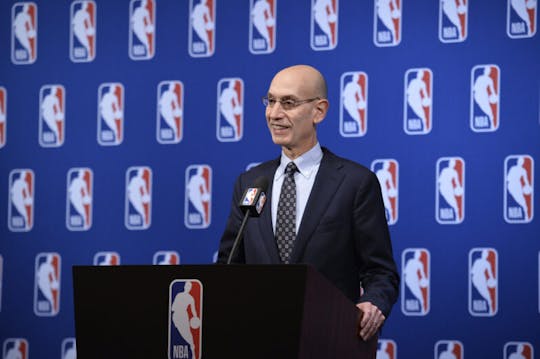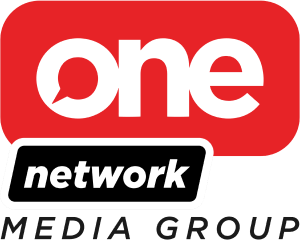Ten months into dealing with the coronavirus and its costly, convulsive challenges to basketball business as usual, the NBA again doesn’t know what it doesn’t know.
The process of discovery the league experienced in the spring and summer has begun anew.
The NBA led the way for many in the culture – not just its 30 franchises – into the virus shutdown last March when it suspended the 2019-20 season. Four months later, it orchestrated and pulled off the Orlando bubble format, completing the playoffs and crowning the Lakers as 2020 champions with zero coronavirus cases on Disney’s ESPN Wide World of Sports complex.
Now, under commissioner Adam Silver’s guidance with the support of the league’s Board of Governors, the NBA is leading the way again in navigating day-to-day life and business with COVID-19 still very much in play.
The schedule will be a little shorter (72 games), fans largely will be absent from the arenas, vaccines are only now rolling out, and the whole bold enterprise is so uncertain that the second half of the regular season hasn’t even been announced.
Yet by calculating the risks, going belt-and-suspenders on safety protocols and keeping fingers crossed, Silver and the league – in partnership with the National Basketball Players Association – are confident they can see through the 2020-21 season, which opens Tuesday night.
“I’ve been asked many times, ‘Why are you starting your season now, given the current state of the pandemic?’ It’s a fair question,” Silver said in a media teleconference Monday afternoon. “The short answer is that we’re comfortable with the health and safety protocols that we’ve designed in consultation with the Players Association and our medical experts, plus we would not be opening the season if we didn’t believe it was safe and responsible to do so.”
But Silver added: “We’d be making a huge mistake if we didn’t remain humble.”
That especially applies to the introduction of fans into arenas, to restore the live-event element not just for ticket buyers but also for a more legitimate semblance of home-court atmosphere. Six teams – Atlanta, Cleveland, New Orleans, Orlando, Toronto (Tampa) and Utah – have announced they will begin play with a limited number of people in attendance.
City health mandates are guiding those efforts, with the NBA monitoring closely. Silver again estimated that in-person attendance accounts for as much as 40 percent of league revenue, so getting fans back into the stands is a priority.
“I think that as we get our sea legs, with some teams bringing in fans, other markets see the success we hope … it’ll mean that we can begin having more fans in our buildings,” he said.
The widespread distribution of vaccines against COVID-19 obviously would aid in that ambition. The estimates of some medical officials that a critical mass of vaccinations could be achieved by March or April would enable the NBA, with its shifted calendar, to really open arena doors for playoffs that are scheduled to begin in May.
“Even when you talk to our players, when we were all down in Orlando, I mean, they desperately missed it,” Silver said of live crowds. (He made a point to say that the league would not “jump the line” for vaccines. In the bubble, the NBA even having access to the number of daily tests needed was a touchy subject for some critics.)
While many players, coaches, staff and owners mostly felt relieved when the bubble held from July into October, the NBA was lauded by many for how it brought the concept to fruition. This time, travel and participants interacting daily with family, friends and strangers across pandemic lines are just two of the new wrinkles.
Individual positive tests are going to be treated a lot like ankle sprains or groin pulls, with players sidelined until they’re deemed healthy enough to return. It’s the bigger bumps in the road that will seize the league’s attention, potentially including even suspensions of play, though an exact trigger for such a seismic measure hasn’t been specified.
“If we found a situation where our protocols weren’t working,” Silver said, “meaning that not only did we have some cases of COVID but that we were witnessing spread either among teams or even possibly to another team, that would cause us to suspend the season.”
As it did with the bubble restart, the NBA weighed health and safety considerations with the economic impact of losing the 2020 playoffs on its teams, its broadcast partners and the “tens of thousands of jobs that are dependent on the league,” Silver said.
But the commissioner added: “The decision tree that we will look at in terms of suspending the season will be solely a health and safety one. If at any point we no longer believe that it is responsible to play, we will halt the season.”
Silver and a group of NBA executives participated in the teleconference, fielding questions on a variety of topics. Among them:
* The Toronto Raptors’ relocation to Tampa, Fla., for at least the first half of this season will bring all sorts of unexpected costs. The other 29 teams likely will reimburse them, Silver said.
Teams that generate some gate receipts, he added, won’t specifically share that money with teams with empty stands. But the NBA’s standard revenue-sharing system would smooth out some inequities from that.
* Teams, with a lone preseason exception, stood for the national anthem as per NBA tradition until the bubble games. Silver indicated he would like that to again be the norm going forward.
“It’s a national ritual of sorts that is something that I hope personally isn’t lost,” the commissioner said, “because there are very few things that bring us together these days. It’s my expectation going into the season that we’re going to return to the practice that’s been part of this league for many decades.”
Two developments may enable that, in showing the NBA and its players have moved beyond raising awareness to actually tackling substantive issues of social protest. First, Silver cited the NBA Foundation, which focuses on driving economic opportunity in the black community and received $300 million in initial funding from the teams. Last week, Greg Taylor was named executive director of the foundation and $2 million in inaugural grants were made to seven organizations.
Silver also talked of the National Basketball Social Justice Coalition, which sprang from the work stoppage during the first round of playoffs in Orlando. The board of governors, players and coaches held its first meeting last week, focusing on reforms in criminal justice, voting access and other areas.
* The NBA’s announcement that marijuana will not be subject to random testing this season will get further study and discussion with the union in time, Silver said. Acknowledging that jurisdictions in which teams travel this season have varying laws related to its use, he said, “We want to make sure we’re not creating a trap for our players and putting in place rules that will put them in the crosshairs of the law.”
Silver added: “While marijuana has been taken off our list for random testing, it doesn’t mean there isn’t still a concern from the league that marijuana, no different than alcohol, can be abused, and that it’s something that we want to play close attention to.”
* NBA deputy commissioner Mark Tatum said that plans for a G League season still are pending. One reported possibility suggested a bubble format in Atlanta for some number of the teams, starting perhaps in January and playing a significantly shortened schedule and playoffs. Top priorities include keeping G League players healthy and safe, while facilitating assignments up or down with their affiliated NBA teams and heeding any quarantine requirements.
* Fans of the Milwaukee Bucks got an explanation of sorts for why their team, but not the Sacramento Kings, was disciplined for their role in the premature and scuttled sign-and-trade deal involving free agent Bogdan Bogdanovic. The Bucks were stripped of their 2022 second-round draft pick.
NBA general counsel Rick Buchanan fielded that questions at Silver’s request, explaining that the Bucks were seen as the instigators in pursuing Bogdanovic before teams were permitted by rule to begin discussions. It was not a tampering offense, he said, but rather “jumping the gun,” which the Board of Governors specifically sought in 2019 to eliminate.
Said Buchanan: “Here the violation was that the team had conversations about a free agent contract with the representative for this player prior to the time when the CBA permitted them to do that, and as a result they were penalized."




